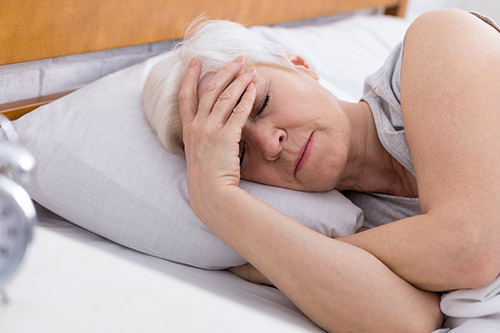



Today we hope to educate all our Bethlehem-area assisted living and our Bethlehem memory care community residents, family, neighbors, and friends on the subject of healthy sleep. Sleep disorders affect people of all ages, but they become more prevalent during your senior years, putting you at risk for a range of other mental and physical health issues. Today’s blog is intended to educate and provide some things to consider, but with that said, we need to make something clear. As it pertains to any and all health-related topics, your medical team is (and always should be) your final source for guidance.
While occasional sleep problems are common, insomnia or other abnormal sleep behaviors are a cause for concern. You can help combat them by identifying the root cause and implementing various natural remedies and routine changes.
It is common knowledge that a chronic lack of quality sleep can negatively affect your physical, mental, and emotional health. During sleep, the body has a chance to repair cell damage and refresh the immune system, subsequently building up your defense against disease and sickness.
For older adults, insufficient sleep puts them at higher risk of depression, anxiety, and memory problems. Additionally, you or your loved one may become more susceptible to daytime sleepiness and nighttime falls. Other more serious conditions that may result from insomnia and other sleep disorders include an increased risk of diabetes, cardiovascular disease, and breast cancer.
In order to improve your quality of life, it’s important to get a good night’s rest on a consistent basis. If you are struggling to get a good night’s sleep, then consult your doctor. You, your doctor, and your family should team together to identify the underlying problem and then applying the appropriate treatment.
In general, adults function best when they get an average of seven to eight hours of sleep each night. It is normal for your body’s internal clock to evolve as you age, causing you to feel sleepy earlier in the evening or to wake up earlier in the morning. Additionally, lower levels of growth hormone production lead to a decrease of slow-wave or deep sleep, resulting in less melatonin and more fragmented sleep.
However, there are a variety of more severe sleep disorders that can negatively impact your ability to feel truly rested. Insomnia, or difficult falling and staying asleep, is the most common, but seniors can also suffer from other sleep-related issues. Some of the main causes of sleep disturbances or insomnia in older adults include:
If you want to improve the amount and/or quality of sleep you are getting, you must treat the underlying problem. For certain root causes—such as pain, medical conditions, or your medications—you should speak to your physician about making changes to your treatment plan. They may also recommend specific solutions to your sleep disorder.
In general, however, there are several preventative measures and routine changes that may help counteract the common causes of insomnia or sleep impairment in seniors:
If you or your loved one struggle with sleep issues, talking with your doctor is a good place to start. Our assisted living and memory care community here in Bethlehem is designed to support our senior residents by providing a safe, secure environment where their everyday needs are met. We not only offer comfortable housing accommodations but also indoor and outdoor amenities, events, and fitness programs to keep you physically and mentally active during your senior years. We are proud to deliver professional assisted living and memory care services that measurably improve quality of life.
We welcome your call and/or visit to learn more. Contact us today!
© 2025 Gateway Gardens at Bethlehem
Web/Marketing Solution Developed and Maintained by WSI Pro Marketing.